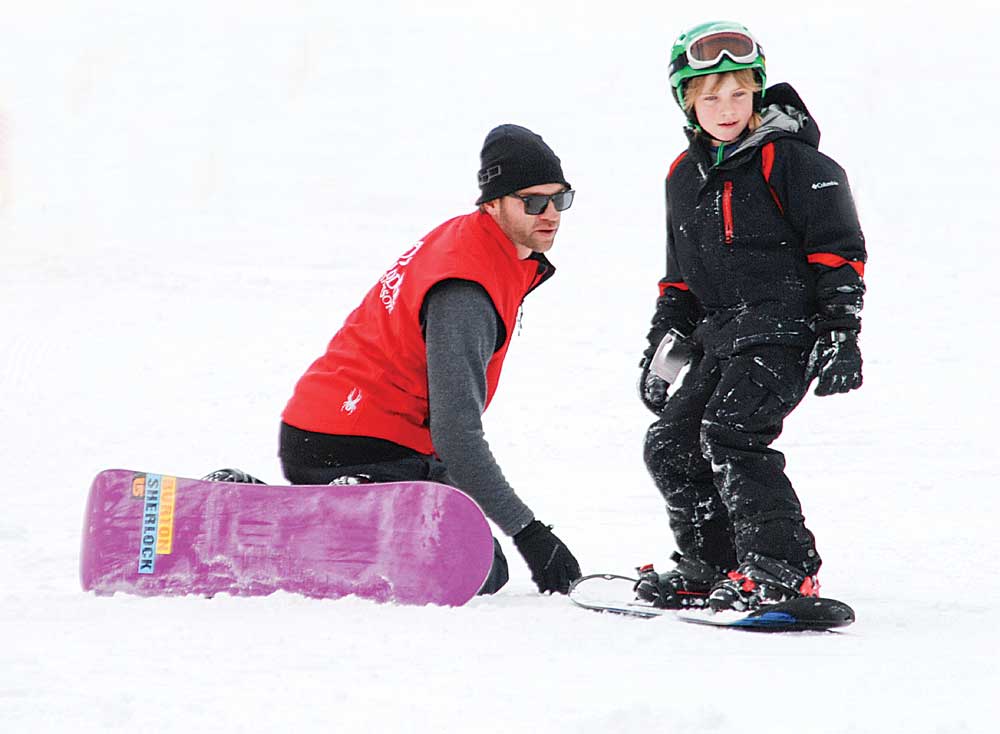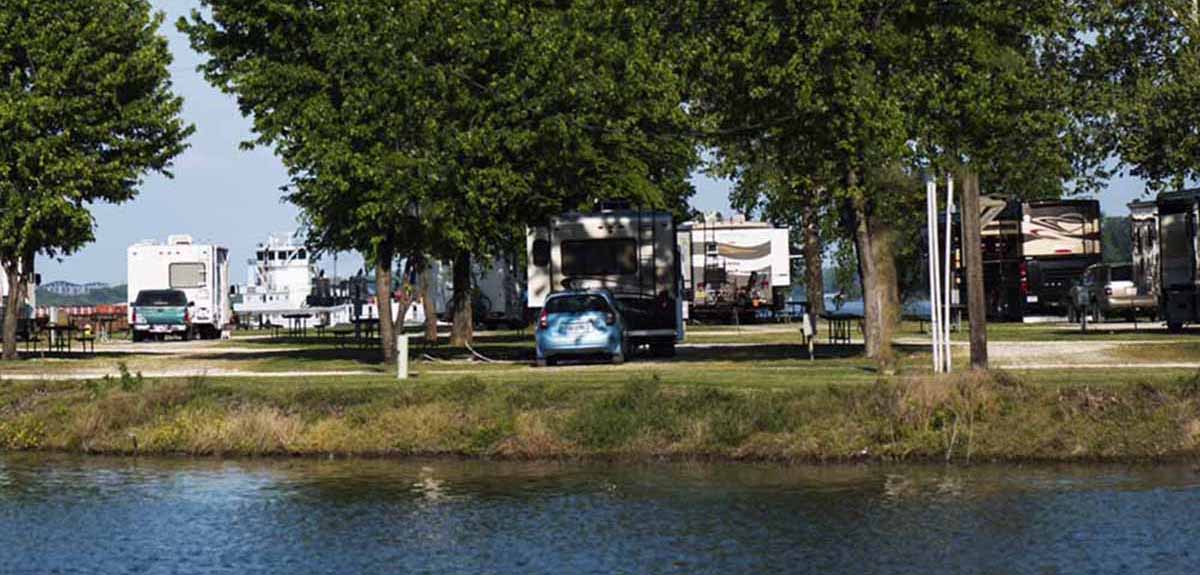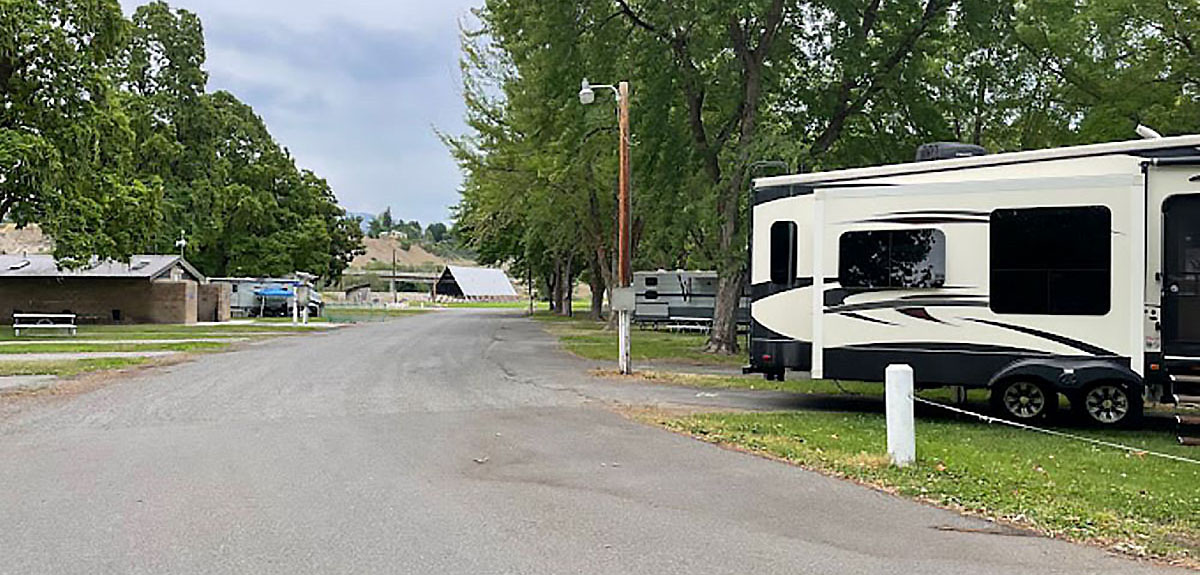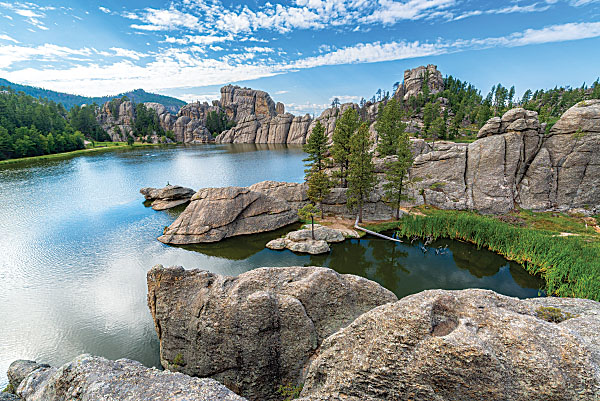Snow Country RVing Tips
Image Caption:
Here are some key things to keep in mind for a cozy stay in the snow. Winter camping doesn’t have to be a headache with a few things to consider before heading out in the snow. Try these snow camping tips for a safer and more enjoyable experience outdoors.
Watch the weather
It’s important to know the travel conditions from home to the resort, and the weather once you get there. If deep snowfall or bitter temperatures, especially after rain, are in the forecast, consider different dates for your trip. There may be powder on the slopes, but driving conditions may be dangerous, and chances are higher that your RV will freeze up.
Bring or find a source of extra LP-gas
In cold weather, RVs use much more LP-gas than during warmer months, mostly to generate heat.
Use a small dehumidifier
Just breathing while you sleep causes more condensation than usual inside your RV. A small dehumidifier helps keep things drier.
Keep your utilities warm
Unlike your house, your RV’s water and sewer lines are above ground and not well insulated. Take steps to keep them from freezing. Some people put insulating foam boards around their RV, between the bottom of the frame and the ground, to help insulate tanks and lines, and to keep the floor warmer. Skirts help but don’t insulate as well.

Not an expert? All ski resorts offer skiing and snowboarding lessons by certified instructors, and rental equipment. They can often store gear overnight, which lessens moisture inside your RV if you don’t have a separate storage area.
Use small heaters to keep water lines from freezing
If you have an electric hookup at the campground, consider electric pipe heaters, holding-tank heaters and small portable heaters. Keep all pipes and hoses off the ground and out of the snow.
Towing Tips in Snow
- Leave plenty of room between you and the vehicle ahead of you.
- Traction is crucial: Be sure your tow vehicle and trailer are outfitted with the right tires for the conditions and are properly inflated. Some jurisdictions (which should be marked) require tire chains on at least one axle of a trailer. If you’ll be towing in snow a lot, consider mud and snow or all-terrain tires for the trailer.
- Limit travel to daytime, when there’s less chance of freezing or black ice.
Do not use cruise control. - Use the brake control carefully. You’ll need the trailer brakes, but don’t set the control too aggressively.
Empty the tanks when temperatures are above freezing
This prevents ice from forming inside them. Consider adding RV antifreeze to holding tanks in addition to toilet chemical to prevent freezing.
Check the seals around windows, skylights and doors
This keeps your rig from working hard to stay warm.
Put a block of wood under the stabilizing jacks
This prevents them from freezing to the pad.
Install insulated curtains
Another way to keep your coach warmer and not burning through fuel.
Bring a blow-dryer
You may need it to thaw something.
Bring a plastic snow or grain shovel
You may need it to clear snow around the RV and from its roof. Use a plastic shovel on an aluminum or fiberglass roof. If you have a membrane roof, use a broom (like a wide push broom), and sweep the roof continually as the snow falls,
as the layer closest to the roof will melt and refreeze.
Cover the slideouts
Slideouts can freeze up and become jammed, especially true if snow has fallen on them and frozen. If you have to extend your slideouts, consider covering them with a tarp and adding a layer of foam-board insulation on top of the box for added comfort.
Pack a windshield ice scraper
Don’t pour warm or hot water on a freezing windshield, since it could crack.





